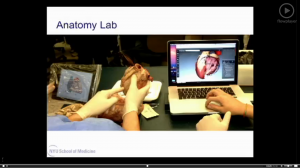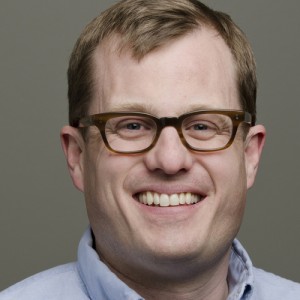Category Archives: Communication
New Perspectives on Health Innovation
Guest post by Brian Quinn, Team Director of Pioneer Portfolio at RWJF
Thank you to Kirsten Ostherr and Bryan Vartabedian for inviting me to be a part of Millennial Medicine last month. As the team director of the Robert Wood Johnson Foundation’s Pioneer Portfolio, my responsibility is to seek out new ideas that have the potential to transform health and health care. To do so, it’s become increasingly obvious to my team that we need to get out of our comfort zone of the usual conference circuit and look for opportunities to engage with folks we don’t know very well. Millennial Medicine was precisely that kind of opportunity. (If you have suggestions for other events I should attend, I’d love to hear them.)
The thing that really stood out for me about Millennial Medicine was the collaboration it fostered, whether it was across institutions or across disciplines.
One of our core beliefs on the Pioneer team is that there is a tremendous potential for health and health care to be transformed by thinking that transcends traditional siloes and comes to us from other industries and disciplines. More often than not that translates to speaking to or hearing from those who are working in technology. I get it; it makes sense. Because of the times we live in, technological advances are often vehicles for innovation. But technology itself doesn’t equate to innovation.
Millennial Medicine was the first time that I was engaging in a dialogue about health and health care innovation with people working in the humanities.
One of the presentations that resonated for me was from Alexa Miller from Arts Practica. Alexa is an arts education specialist working with physicians in Boston to improve the quality of health care by, in part, better enabling these physicians to engage with their patients through closer observation and deeper understanding of their health issues. And Jay Baruch at Brown University is also — through a humanities lens — educating doctors to see patients differently, to better hear what’s going on in their lives and, as a result, perhaps provide them with better clinical care. OpenNotes — an RWJF grant recipient — opens up a dialogue between physicians and their patients by improving communication from the physician to the patient. What Jay and Alexa talked about flips that and allows that patient perspective to flow back in the opposite direction.
Having attended Millennial Medicine, it’s clear to me that I’d love to hear from more people working in the humanities who could share their insight about issues that folks working in the health sector don’t think about very much.
If we’re truly going to disrupt health and health care, we need to consider these different interdisciplinary perspectives and bring others into the picture.
***Editor’s note: Many thanks to Brian from all of us at the Medical Futures Lab – we loved having you at Millennial Medicine and we look forward to continuing the disruptive conversation!
A Dialogue between a Scientist and a Humanist
 One of my favorite exchanges at Millennial Medicine was the dialogue between Eric Topol and Tom Cole about Topol’s “4 S’s”: scanning, sequencing, sensors, and social media. Topol argued that these four fields have become sufficiently mature that we can now digitize human beings, and he outlined the positive results of this revolution for patient care. (Our student Amol Utrankar provided a great summary of this and other presentations, for those who missed them. And we’ll be posting videos of all of the talks by the end of next week – watch this space for more details.) But Tom Cole, Director of the UT McGovern Center for Humanities and Ethics, thought Topol had missed a few S’s: Story, Spirituality, and Suffering – all crucial dimensions of the patient experience that came up at different times in the course of the symposium. This led to a wonderful dialogue in which Eric Topol expanded on his argument to say that, indeed, one of the effects of the digital revolution may be that it frees up doctors to focus on the more human aspects of providing health care: human to human contact.
One of my favorite exchanges at Millennial Medicine was the dialogue between Eric Topol and Tom Cole about Topol’s “4 S’s”: scanning, sequencing, sensors, and social media. Topol argued that these four fields have become sufficiently mature that we can now digitize human beings, and he outlined the positive results of this revolution for patient care. (Our student Amol Utrankar provided a great summary of this and other presentations, for those who missed them. And we’ll be posting videos of all of the talks by the end of next week – watch this space for more details.) But Tom Cole, Director of the UT McGovern Center for Humanities and Ethics, thought Topol had missed a few S’s: Story, Spirituality, and Suffering – all crucial dimensions of the patient experience that came up at different times in the course of the symposium. This led to a wonderful dialogue in which Eric Topol expanded on his argument to say that, indeed, one of the effects of the digital revolution may be that it frees up doctors to focus on the more human aspects of providing health care: human to human contact.


